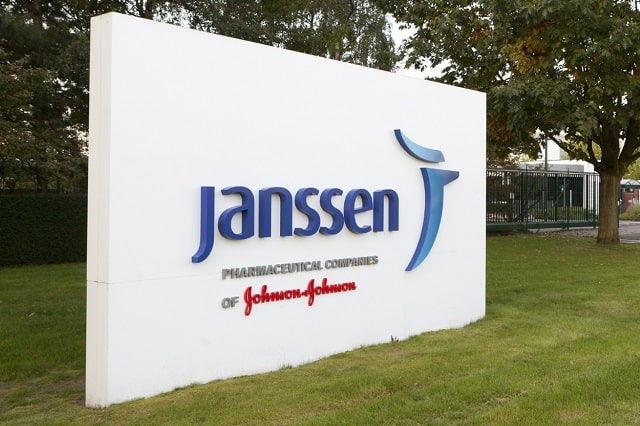
Johnson & Johnson’s depression nasal spray Spravato has been hit with a rejection by the UK’s National Institute for Health and Care Excellence, shortly after gaining approval in the EU.
Spravato (esketamine) is a glutamate NMDA receptor modulator – when it was first approved by the FDA in March last year it was quickly hailed as an end to a drought in new-mechanism antidepressants. It is a single isomer form of ketamine, but is administered at a much lower dose than the notorious illegal recreational drug.
For clinicians and patients, it has particular importance as it starts to work more rapidly than currently approved antidepressants, which can take several weeks to kick in.
It was also approved by the European Medicines Agency (EMA) at the end of last year, for use alongside conventional oral antidepressants in adults who have not responded to treatment with at least two lines of therapy – oral selective serotonin reuptake inhibitor (SSRI) or serotonin and norepinephrine reuptake inhibitor (SNRI) drugs alone.
However, the UK cost-effectiveness watchdog has taken issue with the cost of the drug, saying that there are also uncertainties over it clinical effectiveness.
Meindert Boysen, director of the centre for health technology evaluation at NICE said: “There is a lack of evidence comparing esketamine with all relevant comparators, and the committee concluded that the estimates of cost effectiveness were likely to be much higher than what the NHS usually considers value for money.”
According to NICE, the evidence from clinical trials of Spravato suggested that when used with an oral antidepressant, the nasal spray treatment may be more effective at relieving the symptoms of depression compared to placebo and an oral antidepressant.
However, the benefit of J&J’s drug when compared to other treatment regimens is unclear, the institute said. This includes treatment with oral antidepressants alongside antipsychotics or lithium adjunctive therapy, oral antidepressants combined, or other alternative treatments such as psychological therapies – J&J did not compare Spravato to these treatments directly so there is not definitive case for the drug’s superiority.
NICE also highlighted uncertainty regarding the effect of stopping Spravato treatment, saying that it is unclear if the improvement in symptoms will be maintained over the course of the treatment and if this will improve quality of life.
As a result, NICE has deemed that the costs of possible repeated courses of treatment are unknown, as well as the costs of providing the clinic service for the drug.
The NICE rejection echoes criticisms aimed at the drug by the US Institute for Clinical and Economic Review (ICER), which concluded that Spravato – while “promising in terms of clinical efficacy for symptoms improvement and achieving clinical response compared to placebo” – is overpriced.
Hitting back at the critics, director of real-world value and evidence at J&J’s Janssen Scientific Affairs unit John Sheenan said last year: “We found that, because it can help more patients have a significant reduction in their depressive symptoms compared to an oral antidepressant plus placebo, Spravato is a meaningful clinical and economic investment.
“People who no longer experience ongoing depressive symptoms pay less to manage their disease, reduce the cost to the overall healthcare system, and are able to get back to their lives,” he added.




